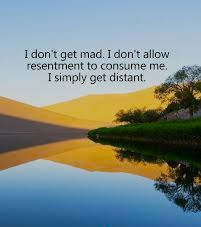《自律養生實踐家之旅295》 修養生,必修好脾氣

不只一次在文章中反省自己年輕時的脾氣,從大學時期到創業歷程中的二十年,我至今仍搞不懂,當時的自己是從哪裡學會那種盛氣凌人的模樣。
幾乎可以確信,情緒是被模仿出來的,是在潛移默化中悄悄養成的,環境中的情緒演出被潛意識深刻記憶,於是漸漸有樣學樣。
後來,當我從兒子身上看到一些不夠理智的舉動時,責任與反省便不由自主的落回自己身上,他們小學時被我怒斥的畫面,至今仍記憶猶新。
脾氣,是一種修養。當旁觀者時,我們或許能看得清楚,但一旦成為當事人,情緒一上來,修養便瞬間蒸發。怒氣上揚的那一刻,所有的自持與理性早已不見蹤影。
生命中的一次次轉折,讓我有機會重新審視自己的修養。那些情緒反應依然存在,不快的事情依然會發生,當壞習氣快要浮現之際,我能夠被自己的理智緊急拉回。
「這是會傷身的行為,何苦為之?」不全然是為了形象,也不只是因為修養提升,而是清楚知道:怒氣,是一種毒,應該適時止損。
坐在別人開的車上,最容易觀察一個人的修養。開得快不快不是重點,重點是這個人開車的氣場是否讓人安心。若修養不夠,乘客自然會有提心吊膽的時刻。
若手握方向盤的是自己,那修養的好壞也都會有紀錄,不是行車紀錄器的存檔,而是內心是否穩定、是否坦然。
二十年來,我執教於養生領域,除了專業知識逐年深化,更重要的是心性與修養的同步成長。這方面,我無法自評,但我可以確定的是,脾氣已被紀律消融許多。
這二十年,也正是我與身體深度合作的時期。我很清楚,身體不喜歡我的急躁,也反對我發怒。
發過脾氣的人都知道,怒氣難消,而最難善後的往往不是人際關係、也不是現場的氣氛,而是身體。
經常發怒的人可能無法想像,那些說不清的病痛與每一次的怒火,其實可能早已建立起明確的因果連結。
多年前,那一連串匿名的網路黑函事件,給了我人生中極為重要的一課。那是我人生最深的低谷之一,不實的抹黑公然登上媒體,幾乎將我多年努力一夕打回原形。
在那一年漫長的低谷中,我驚覺自己竟然沒有時間發怒,因為我必須全力投入工作。
事過境遷,我終於明白,那一年是上天送給我最珍貴的禮物。逆境,是最真實的回饋;而經歷,是最深的禮讚。如今回溯,除了感恩,還是感恩。
學會凡事感恩,竟需要這樣巨大的事件來提醒,而且,是在人生過半的年紀才真正領悟。
回想當時幾近當頭棒喝的衝擊,那是一種靈魂的警鐘。
道理人人都懂,但唯有在現實中體驗,才能真正刻骨銘心。感恩可以掛在嘴上,也可以深植心底。
我至今仍記得,有人無端在我面前發怒的情景,我沒有辯解,只是不斷致歉。如今回想,那事件也教會我:連修養差的人,也值得我感恩,因為他們給了我學習的機會。
深刻領悟到,有多少人是「氣死自己」的,我也常在閒聊中自嘲:如果脾氣不改,搞不好我早就沒命了。
課堂中講解肝臟的負擔,但很少明說,肝臟的最大負擔,可能來自無端的怒氣。
不只是發怒,急躁也是壞脾氣的一種。對身體而言,急躁會促使壓力荷爾蒙頻繁釋放,是一種內耗。
急性子的人未必知道,自己就是壓力的製造者。而那些缺乏耐性的人,也未必知道,他們所謂的「急」,最後往往演變成「怒」,也就是身體毒害自己的過程。
總有那麼一天,每個人都會開始反思生命的意義。當你能領悟:來到這世上,是為了「修脾氣」,那便是一種層次的覺醒。
我個人的體悟,其實很單純:若沒有他人,我們什麼都不是,而服務他人,就是我們此生唯一的學分。
當人生確立以「奉獻」為宗旨,便沒有發脾氣的資格。
(我不生氣,也不讓怨恨吞噬我,我只是選擇漸漸疏遠。)
To Cultivate Health, One Must First Cultivate Temperament
I’ve reflected more than once in my writings on the temper I had in my younger years. From university through two decades of entrepreneurship, I still cannot understand where I learned to act with such arrogance.
I’ve come to believe that emotions are often mimicked — quietly absorbed and shaped by the environment, replayed through subconscious memory until we begin to imitate what we’ve seen.
Later, when I saw irrational behavior in my own sons, I couldn’t help but trace the responsibility back to myself. The image of me scolding them during their elementary school years remains vivid.
Temper, I’ve come to realize, is a form of cultivation. As observers, we may see it clearly in others. But the moment we become the one involved, emotion flares, and all self-restraint vanishes. At the height of anger, reason and composure are nowhere to be found.
Life’s many turning points gave me opportunities to reexamine my own cultivation. Emotional triggers still exist. Upsetting things still happen. But now, when bad habits are about to resurface, my rational mind can often pull me back just in time.
“Why do something that will harm your health?” It’s not merely for the sake of appearances, nor only because of greater self-discipline — it’s because I now clearly understand: Anger is a kind of poison, and we must learn to cut our losses early.
One of the best ways to observe someone’s temperament is to sit in the passenger seat while they drive. Speed isn’t the issue — it’s whether their presence behind the wheel feels calm and secure. If someone lacks cultivation, passengers will naturally feel uneasy.
When I am the one holding the steering wheel, my own temperament leaves traces as well — not just in the dashcam footage, but in whether I feel steady and at ease inside.
Over the past 20 years, I’ve been a teacher in the wellness field. While my technical knowledge has deepened, the more significant transformation has been the growth of my inner character. I can’t objectively evaluate myself, but one thing I know for sure: discipline has dissolved much of my former temper.
These two decades also marked my most intimate collaboration with the body. I’ve come to understand — my body doesn’t like my impatience, and it resists my anger.
Anyone who has lost their temper knows how hard it is to cool down. But often, the hardest aftermath is not the interpersonal tension or social awkwardness — it’s what happens within the body.
Those who frequently lose their temper may not realize the link between their chronic discomforts and their repeated episodes of rage. Yet the correlation may be clearer than they think.
Years ago, a string of anonymous online attacks taught me one of life’s most important lessons. That period marked one of the lowest points in my life — baseless accusations were made public by the media, threatening to undo years of hard work in an instant.
But during that long valley of despair, I was surprised to find I had no time to be angry — because I was too busy focusing on my work.
In hindsight, I now see that year as a priceless gift from the heavens. Adversity offers the most truthful feedback. And experience, the deepest form of praise. Looking back, I feel nothing but gratitude.
It’s humbling to realize that such a monumental event was necessary to awaken a sense of thankfulness — and that this realization came only after I had passed the midpoint of life.
The shock of that time was like a lightning bolt to the soul — a spiritual alarm clock.
Everyone knows these truths in theory. But only lived experience can make them unforgettable. Gratitude can be a polite phrase, or a seed planted deep in the heart.
I still remember a moment when someone exploded with anger in front of me without reason. I didn’t defend myself. I simply apologized. Looking back, even that taught me something: Even people who lack grace are worthy of my gratitude — because they offer me a chance to grow.
I’ve come to understand deeply how many people end up “dying of their own rage.” I often joke during casual chats: If I hadn’t learned to control my temper, I might not even be alive today.
In classes, I often explain the burdens on the liver, but rarely mention its greatest weight — unprovoked anger.
It’s not just rage. Impatience is also a form of poor temperament. For the body, impatience triggers constant releases of stress hormones — a slow internal burn.
People with short tempers may not realize they are the source of their own pressure. Those who lack patience may not know that what they call “urgency” often morphs into “anger” — a form of self-poisoning.
One day, everyone will reflect on the meaning of life. And when you finally realize that one of the reasons you came into this world was to “temper your temper,” that moment will mark a higher state of awareness.
For me, the realization is simple: Without others, we are nothing. And to serve others is the only real lesson we’re here to learn.
Once you adopt “service” as your life’s principle, you relinquish the right to lose your temper.


